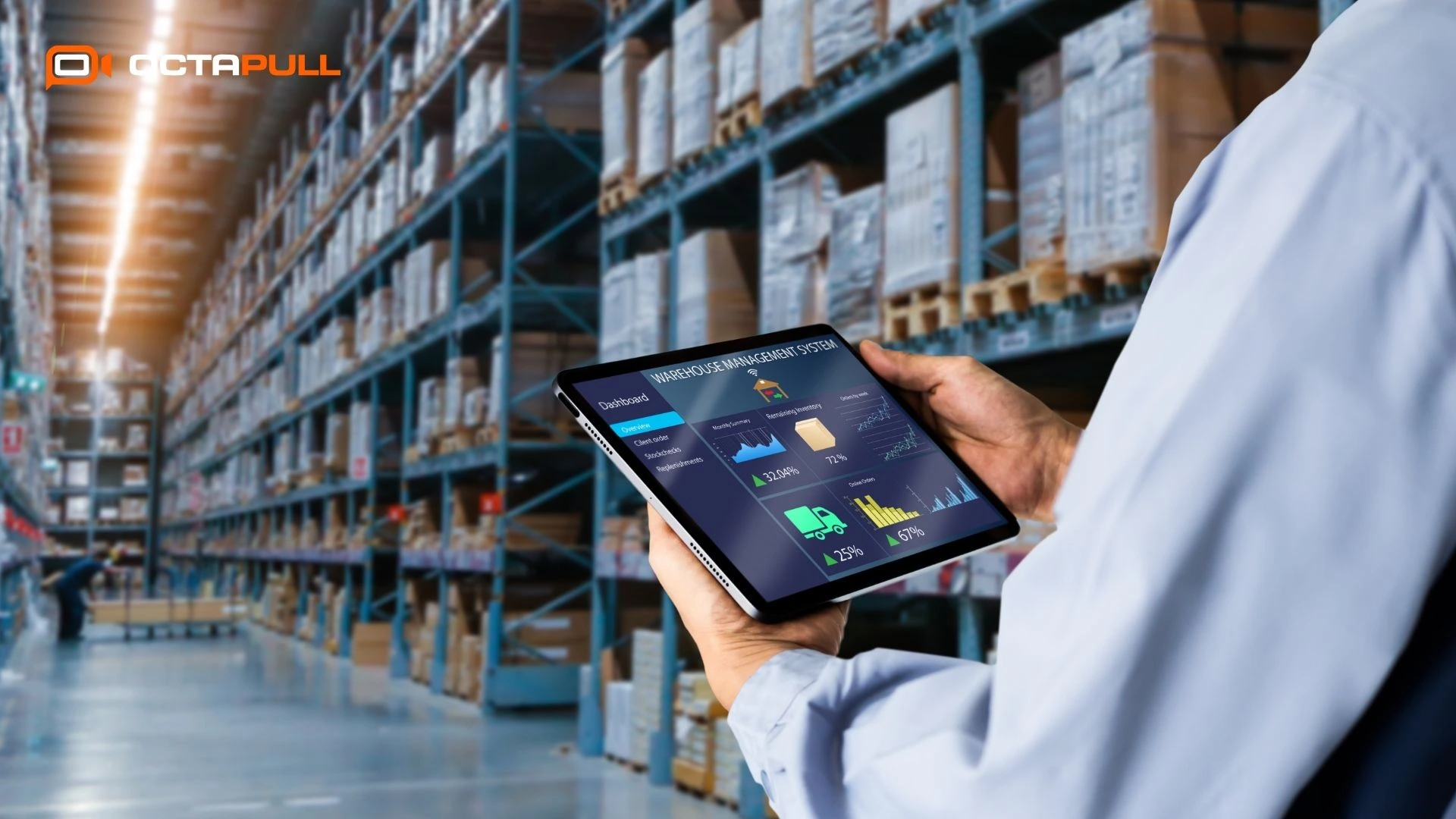Financial Information Management Systems: Choose the Right Solution for Your Company
Effective information management is paramount for businesses aiming to thrive and stay competitive. Among the various facets of information management, Financial Information Management stands out as a critical component that ensures the seamless handling of financial data, driving informed decision-making and strategic growth.
Selecting the right Financial Information Management System (FIMS) can significantly impact your company's operational efficiency, compliance, and overall financial health.
What is Information Management?
Information management is the systematic process of collecting, storing, organizing, and disseminating data within an organization.
It encompasses a range of activities and technologies designed to manage information throughout its lifecycle—from creation and storage to retrieval, usage, and eventual disposal.
The primary goal of information management is to ensure that data is accurate, accessible, secure, and effectively utilized to support business objectives.
Key Components of Effective Information Management
- Data Collection: Gathering relevant data from various sources, both internal and external to the organization.
- Data Storage: Safely storing data in databases, cloud storage, or other storage solutions to ensure its integrity and availability.
- Data Organization: Logically structuring data, often using databases, to facilitate easy retrieval and analysis.
- Data Security: Implementing measures to secure data from unauthorized access, breaches, and other security threats.
- Data Dissemination: Distributing information to the right stakeholders in a timely and efficient manner.
- Data Disposal: Properly disposing of data that is no longer needed, ensuring compliance with relevant regulations and standards.
Effective information management empowers organizations to make informed decisions, improve operational efficiency, enhance collaboration, and maintain a competitive edge in the marketplace.
What is Financial Information Management? 
Financial Information Management is a specialized branch of information management focused specifically on handling financial data.
It involves the processes and systems that collect, store, manage, and analyze financial information to support financial planning, reporting, and decision-making within an organization.
Given the sensitive nature of financial data and its critical role in business operations, robust financial information management is essential for ensuring accuracy, compliance, and strategic insight.
Key Aspects of Effective Financial Information Management
- Accounting and Bookkeeping: Recording financial transactions accurately to maintain up-to-date financial records.
- Financial Reporting: Generating reports such as balance sheets, income statements, and cash flow statements to provide insights into the company's financial health.
- Budgeting and Forecasting: Planning future financial activities and predicting financial outcomes based on historical data and market trends.
- Compliance and Regulation: Ensuring that financial practices adhere to relevant laws, standards, and regulations to avoid legal repercussions.
- Risk Management: Identifying and mitigating financial risks that could impact the organization's stability and growth.
- Investment Management: Overseeing the company's investment portfolio to optimize returns and manage risks effectively.
A well-implemented Financial Information Management System (FIMS) automates processes, reduces the likelihood of errors, enhances data security, and provides real-time access to financial information. This functionality enables better financial stewardship and strategic planning.
Choosing the Right Financial Information Management System
Selecting the appropriate Financial Information Management System is an important decision that can influence various aspects of your company's operations.
An ideal FIMS should align with your business needs, support your financial processes, and adapt to future growth. Here's a comprehensive guide to help you navigate the selection process effectively:
A. Identify Your Business Needs
Before exploring potential FIMS options, it's crucial to conduct a thorough assessment of your company's specific requirements. Consider the following questions:
What Type of Financial Data Do You Manage?
Are you dealing with basic accounting tasks, or do you require more complex functionalities like investment management, multi-currency support, or advanced financial modeling?
What Are Your Reporting Requirements?
Do you need detailed, customizable reports for in-depth analysis, or are summary reports sufficient for your decision-making processes?
How Many Users Will Need Access to the System?
Assess the size of your team and the level of access each member requires. Consider whether the system can support multiple users simultaneously without performance issues.
What Are Your Integration Needs?
Determine if the FIMS needs to integrate with other systems, you currently use, such as Customer Relationship Management (CRM) software, Enterprise Resource Planning (ERP) systems, or e-commerce platforms.
What Is Your Budget?
Establish a budget range for your FIMS investment, considering not just the initial costs but also ongoing expenses like maintenance, upgrades, and support services.
What Are Your Scalability Requirements?
Consider your company's growth trajectory. Ensure that the FIMS can scale to accommodate increasing data volumes, more users, and additional functionalities as needed.
By clearly defining your business needs, you can narrow down the FIMS options to those that are most compatible with your operational requirements and strategic goals.
B. Evaluate Key FIMS
Once you've identified your business needs, the next step is to evaluate the key features offered by various FIMS options.
- Data Integration: The ability to seamlessly integrate with other business systems (e.g., CRM, ERP, e-commerce platforms) is vital for ensuring consistent data flow and minimizing manual data entry.
- Automation: Look for systems that can automate repetitive tasks such as data entry, invoicing, payroll processing, and report generation. Automation not only saves time but also reduces the risk of human error.
- Security: Financial data is highly sensitive. Ensure the FIMS offers robust security features, including data encryption, user authentication, role-based access controls, and regular security updates to protect against breaches and unauthorized access.
- Scalability: The system should be capable of growing with your business. It should handle increasing amounts of data and support an expanding number of users without compromising performance.
- Customization: Every business has unique processes and requirements. A customizable FIMS allows you to tailor the system to fit your specific workflows, reporting needs, and user preferences.
- User-Friendly Interface: A system with an intuitive and easy-to-navigate interface enhances user adoption and reduces the learning curve for your team members.
- Real-Time Reporting and Analytics: Access to real-time financial data and advanced analytics capabilities enables time and task management also informed decision-making.
- Mobile Accessibility: In an increasingly mobile workforce, having access to the FIMS via mobile devices can enhance flexibility and productivity, especially for remote teams.
- Support and Training: Comprehensive customer support and training resources are essential for ensuring smooth implementation and ongoing system usage.
C. Compare Solutions for Remote Teams
The rise of remote work has transformed how businesses operate, making it imperative to choose a FIMS that supports the unique challenges and requirements of remote teams.
A system that facilitates collaboration, accessibility, and communication can significantly enhance the productivity and efficiency of a distributed workforce.
- Cloud-Based Access: A cloud-based FIMS allows team members to access financial data from anywhere with an internet connection, eliminating the limitations of physical office spaces and enabling real-time collaboration.
- Collaboration Tools: Features such as shared digital workspaces, real-time editing, commenting, and integrated communication tools (e.g., chat or video conferencing apps like OctaMeet) facilitate seamless teamwork and information sharing among remote employees.
- User-Friendly Interface: Remote workers may not always have immediate access to technical support. A user-friendly interface ensures that team members can navigate the system independently, reducing downtime and reliance on support services.
- Mobile Accessibility: Mobile-friendly FIMS or dedicated mobile apps allow remote team members to manage financial tasks on the go, enhancing flexibility and responsiveness.
- Robust Security Measures: Ensuring data security is paramount, especially when team members access the system from various locations and devices. Features like multi-factor authentication, encrypted data transmission, and regular security audits are essential.
- Scalability and Flexibility: As remote teams may fluctuate in size or structure, the FIMS should be scalable and flexible enough to accommodate changes without compromising performance or security.
- Reliable Support and Training: Remote teams may require accessible support channels (e.g., online chat, email, or phone support) and comprehensive training resources to address any issues promptly and ensure effective system utilization.
D. Focus on Digital Sales Processes
For companies engaged in digital sales, efficient financial information management is crucial to streamline operations, manage transactions, and analyze sales performance.
A FIMS that seamlessly integrates with digital sales processes can enhance your ability to track revenue, manage invoicing, and gain valuable insights into your sales data.
- E-Commerce Integration: If your company operates an online store or engages in e-commerce activities, the FIMS should integrate with popular e-commerce platforms (e.g., Shopify, WooCommerce, Magento) to automatically capture and reconcile sales transactions.
- Automated Invoicing: Automated invoicing features can generate and send invoices to customers promptly, reducing manual effort and minimizing the risk of errors. Integration with payment gateways can also facilitate seamless payment processing.
- Real-Time Sales Reporting: Access to real-time sales data allows you to monitor sales performance, track revenue trends, and make data-driven decisions to optimize your sales strategies.
- Inventory Management: For businesses that manage inventory, integration with inventory management systems ensures that financial data accurately reflects stock levels, reducing discrepancies and improving order fulfillment processes.
- Customer Relationship Management (CRM) Integration: Integrating the FIMS with your CRM system can provide a holistic view of customer interactions, sales pipelines, and financial transactions, enhancing your ability to manage customer relationships effectively.
- Multi-Channel Sales Support: If your business sells across multiple channels (e.g., online, in-store, mobile), the FIMS should consolidate financial data from all channels to provide a unified view of your sales performance.
- Tax Compliance: Automated tax calculations and compliance features ensure that your digital sales processes adhere to relevant tax regulations, reducing the risk of penalties and ensuring accurate financial reporting.
- Analytics and Insights: Advanced analytics capabilities can provide deeper insights into sales patterns, customer behavior, and revenue drivers, enabling you to refine your sales strategies and maximize profitability.
By focusing on these features, you can ensure that your Financial Information Management System effectively supports your digital sales processes, enhancing efficiency, accuracy, and strategic decision-making.
A Strategic Decision for Operational Excellence and Growth 
The process of choosing the right system involves identifying your business needs, evaluating key features, comparing solutions tailored for remote teams, and focusing on systems that support digital sales processes.
Financial Information Management Systems like QuickBooks Online, SAP Concur, Xero, and NetSuite each offer unique strengths catering to different business sizes and requirements.
Whether you are a small business seeking an intuitive and affordable solution or a large enterprise requiring a comprehensive and scalable system, there is a FIMS designed to meet your specific needs.
In an era where remote work and digital sales are increasingly prevalent, investing in the right Financial Information Management System is not just a necessity but a strategic advantage.
A well-chosen FIMS enhances data accuracy, streamlines financial processes, supports remote collaboration, and provides valuable insights that drive informed decision-making.
By prioritizing effective information management, your company can achieve operational excellence, ensure financial compliance, and pave the way for sustained growth and success.
The Future of Financial Information Management
As technology continues to evolve, so too does the landscape of Financial Information Management. Emerging trends and advancements are reshaping how businesses handle their financial data, offering new opportunities for efficiency, accuracy, and strategic insight.
Artificial Intelligence and Machine Learning
AI and machine learning are increasingly being integrated into FIMS to automate complex tasks, predict financial trends, and provide deeper analytical insights. These technologies can enhance data accuracy, identify anomalies, and offer predictive analytics that inform strategic planning.
Blockchain Technology
Blockchain offers enhanced security and transparency for financial transactions. By leveraging blockchain, FIMS can provide immutable records of financial data, reducing the risk of fraud and ensuring data integrity.
Advanced Analytics and Big Data
The ability to analyze big data for financial processes in real time is becoming a standard expectation. Advanced analytics tools enable businesses to uncover hidden patterns, forecast financial performance, and make data-driven decisions with greater confidence.
Integration with the Internet of Things (IoT)
IoT devices can provide real-time data inputs into FIMS, such as inventory levels, sales transactions, and operational metrics. This integration allows for more comprehensive financial tracking and management, enhancing overall business intelligence.
Enhanced User Experience
Future FIMS will continue to prioritize user experience, offering more intuitive interfaces, customizable dashboards, and seamless mobile experiences to cater to the evolving needs of modern businesses and their teams.
Sustainability and ESG Reporting
As environmental, social, and governance (ESG) considerations become more important, FIMS will increasingly support sustainability reporting, enabling businesses to track and report on their ESG metrics alongside traditional financial data.
By staying ahead of these trends and incorporating forward-thinking solutions, businesses can ensure that their Financial Information Management Systems remain relevant, effective, and capable of supporting long-term growth and success.
Octapull B2B - Digital Sales Management
In the rapidly evolving business landscape, digital transformation is no longer an option but a necessity for companies aiming to stay competitive.
Octapull B2B is at the forefront of this transformation, offering a comprehensive platform that not only enhances sales processes but also plays a critical role in modernizing financial management processes.
Octapull B2B integrates seamlessly with existing ERP systems, providing a robust foundation for companies to streamline their financial data management.
With features such as real-time risk monitoring, advanced reporting, and instant-secure payment processing, Octapull B2B enables businesses to make informed decisions, optimize their financial workflows, and ensure compliance with industry regulations.
Moreover, the platform's mobile integration and on-premise deployment options offer flexibility and control, allowing businesses to adapt their digital transformation strategies to their unique needs. By leveraging Octapull B2B, companies can accelerate their digital journey, enhance operational efficiency, and maintain a competitive edge in the market.
As a trusted partner in digital transformation, Octapull B2B provides the tools and insights necessary for companies to thrive in the digital age.
Octapull B2B allows businesses to manage their sales processes more effectively with comprehensive solutions. It aims to optimize business processes with pricing, order management, customer relations, campaign, and risk management features.
Experience the power of Octapull B2B's advanced technologies to revolutionize your financial data management and streamline your B2B sales operations.






